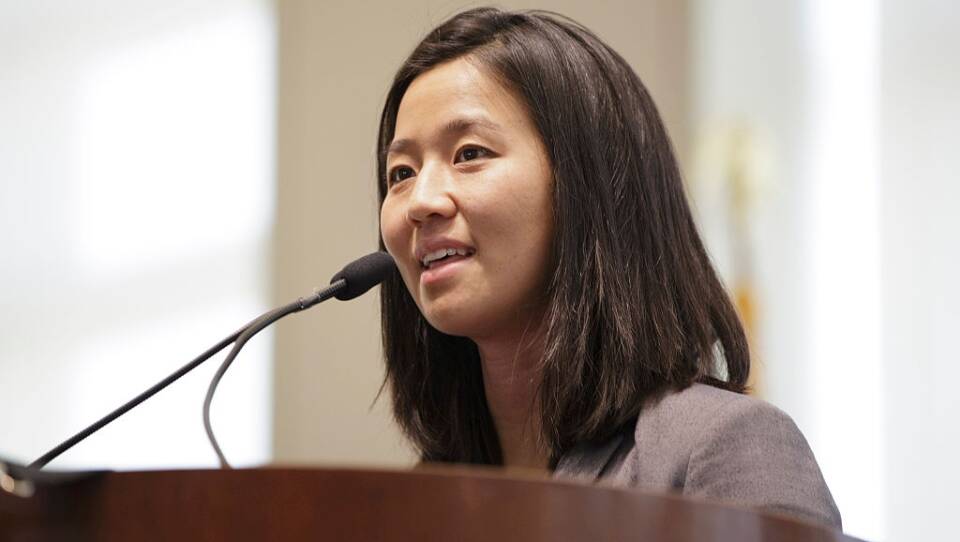In an effort to reduce traffic and pollution in the city, Boston City Councilor Michelle Wu is proposing a $25 residential parking permit fee. But Mayor Marty Walsh said he has concerns about the measure, citing the already high costs of owning a car in Boston. Morning Edition Host Joe Mathieu spoke with Councilor Wu about her proposal and why she thinks it will benefit the city. The transcript below has been edited for clarity.
Joe Mathieu: You point to all the cars circling the block, looking for a spot. We've all been there, and we've all seen it — it causes pollution [and] congestion. So what exactly are you proposing?
City Councilor Michelle Wu: We know that the resident parking system right now in Boston isn't working for a lot of residents — that it's stressful and frustrating not to be able to find a spot. Most other cities around Boston have a much smarter system. They charge a modest fee, and there's also a visitor parking pass. So the proposal is to charge $25 for the first car and increasing by $25 after that — so $50 for the second car, etc. — to exempt seniors and low-income residents, as well as home healthcare aides and Boston Public School staff visiting students or patients, and to create a visitor parking pass program.
Mathieu: Is the idea to discourage people from having a car at all? How does a $25 fee cut down on the number of cars parked on the street?
Wu: We know that even when cities move to a very small charge, residents start to think differently about what to do with their vehicles. Any steps to get closer to the actual impact of circling and congestion and pollution start to affect how people think about their parking choices. There are many places in neighborhoods where people might have a spot behind the house, in an alley or even a driveway, but it's faster — saves 30 seconds or a minute — to park on the street. Or there might be people who, because they can store a car for free on the street, choose to do so. So we know from other cities' experiences that even a small charge makes a difference. We need to start taking action to cut down on Boston's traffic, which is the worst in the country.
Mathieu: Mayor Walsh was asked about this and says he's concerned [that] his recent plan to hike fees at parking meters and increase enforcement might not have a chance to actually show if it's working before we do something like this. Do you want to see if parking meter fees make a difference first?
Wu: We know that parking meter fees do make a difference. The pilot that the city had started to change the pricing of meters depending on time of day and the demand did have an impact, and that's why the city is moving forward with making those changes on the commercial side. It is a much more difficult conversation for residents and resident parking because these are hardworking neighbors, people who are already, in many cases, struggling to stay and afford to live in a city that's increasingly expensive. But we need to talk about what the right balance is between getting closer to valuing our public spaces the right way, and having that impact of congestion and circling cut down a bit.
Mathieu: Of course the alternative here is public transportation, and you're a big proponent of public transportation. But I also don't need to tell you how crowded things are on the T and how challenged the whole system is.
Wu: We really need to be moving forward on all fronts: making public transportation more affordable, accessible and reliable, better pricing and managing our resident parking in a smarter way, [and] thinking about congestion pricing, which would put a cost on people who are driving through Boston and coming through downtown. It is at the point now where traffic and congestion are not just a threat to climate change and our environment, but really a threat to our economy. Boston will be choked by our traffic if we don't take action.
Mathieu: If I'm hearing you right, city councilor, it's a combination of all of these things that is needed. One or two of them don't work on their own; you need to have a suite of solutions. Is that right?
Wu: That's absolutely right. Some we can do at the city level. Some need state approval or partnership with the MBTA. But this is an action that the city could take all on its own. And just as we're taking it on the commercial parking side, we need to have the conversation on the residential parking side, too.





